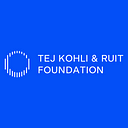Education & Blindness
Blind children living in low-income countries have limited access to sufficient education. With sometimes minimal amounts of progress being made in some areas, there is still a a long journey ahead in relation to supporting blind children’s educational needs.
Visual impairment is one of the most common disabilities seen in children. Across the world many children require access to glasses or some form of corrective surgery or treatment. When those children lack access they are automatically disenfranchised from education and social activity.
Poor vision can cause many issues, mainly when living in low-income countries. Across the West, countries such as America and the United Kingdom have practices in place that allow children to gain access to sufficient treatments. On the other side of the world, this is not always the case. In areas such as South-East Asia and Africa, children battle many obstacles when trying to go to school and learn. Both being out of school and also attempting to go to school can reduce a child’s ability to learn. Schools in those regions do not have the structure and resources to create a safe learning environment for blind children, so whether they are in school or not, they will still fall behind. Many governments are unable or unwilling to provide new systems for education. Often meaning that those who are blind are almost destined for a life of struggle.
Whilst all may seem lost, many organisations are workng towards creatinf soluitons. In 2018, the Commonwealth made a strong commitment to giving access to quality eye care for all — the first time that any heads of state had pledged to support eye health on a large scale. This initiative then encouraged the United Nations to create a resolution that supports the development of eye care.
Building upon this, the Commonwealth Coalition has revived its call for education ministers to work alongside health professionals and ministers to create a system that introduce eye tests and an accessible treatments across the Commonwealth by 2030.
Around three-quarters of the world’s blind youth live in the poorer regions of Asia and Africa where eye specialists are limited. Organisations such as ourselves are beginning to train doctors in new methods tat can treat needless blindness in developing nations. With this in mind, it is important to note that the International Agency for the Prevention of Blindness discovered that there was a “critical shortage” of eye care professionals in many areas of the world.
With the emphasis on education and children, it is essential to recognise that implementing programmes within communities and schools will improve the lives of many visually impaired children across the world.
For this to become a reality, we must call on governmental bodies and organisations to make a real change before it is too late.
The Tej Kohli & Ruit Foundation was founded in March 2021 by London philanthropist Tej Kolhi and Kathmandu ‘God of Sight’ Dr Sanduk Ruit. As of November 2022 the NGO had screened 170,022 patients and cured 22,663of blindness at 91 outreach camps in Nepal, Bhutan and Ghana. The Tej Kohli & Ruit Foundation is a restricted fund operating under the auspices of Prism The Gift Fund, registered UK charity number 1099682. The Foundation targets the #1 United Nations Sustainable Development Goal of reducing poverty by making large-scale surgical interventions to cure blindness at the grassroots in the developing world. All treatments are provided completely free, with 100% of the funding coming from Tej Kohli and the Kohli family.
